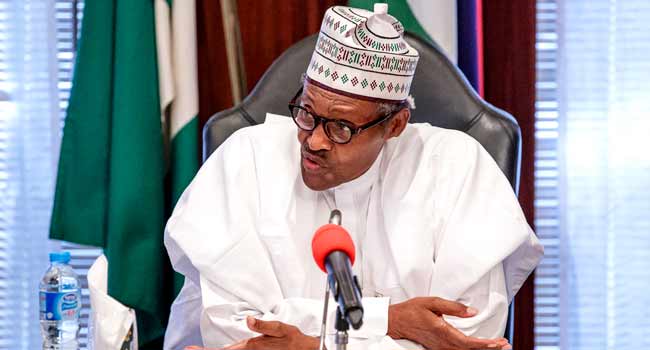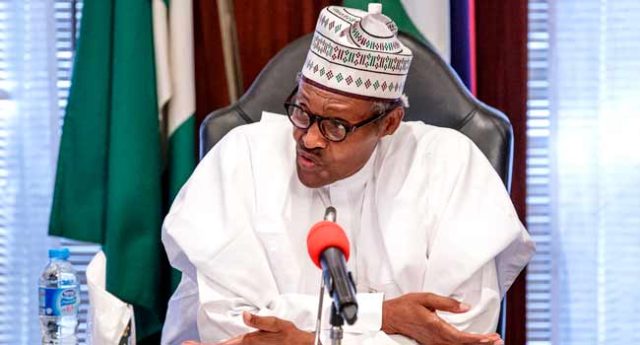Political Issues
What is Buhari’s problem with the Electoral Act? -By Festus Adedayo

The four-time refusal of President Muhammadu Buhari to give assent to the Electoral (Amendment) Bill 2018 should attract the curiosity and attention of every Nigerian. From readings of the exchanges between the Nigerian presidency and the National Assembly, it should be glaring to anyone that this brawl is very significant and very consequential to our lives. The bill is a reform proposal to Nigeria’s chaotic electoral system which the Assembly under Goodluck Jonathan, initially passed. Buhari’s alibi for refusing assent to the bill is that it will cause “disruption and confusion” as its passage is close to the 2019 elections. His words: “passing a new electoral bill this far into the electoral process… could create some uncertainty about the applicable legislation.”
Not minding this claim by the President, Buhari’s refusal should further interest Nigerians due to the spate of electoral fraud and vote-buying that have been on the ascendancy since the inception of this administration. While there may be some elements of truth in the claim by the President that the introduction of a new system of voting at this time, two months to the consequential Nigerian elections of 2019, could have a debilitating imprimatur on the elections, National Assembly members and opposition party members have said that the most important amendment to that bill which ostensibly gives the President the jitters is the electoral voter card reader. With the card readers, it would almost be an impossibility for anyone to rig elections as is the wont of political parties in Nigeria. By the wording of the bill and addressing the fears of a possible confusion if the machine malfunctions, a substitute machine would be brought to the affected polling station and voting may be postponed for about 24 hours.

Another proposal in the bill is the limit it sets on campaign funds, real time on-the-spot live transmission of voting results, mandatory access to all party agents to inspect election materials before voting commences, mandatory access to party agents to be present during voting, collation and announcement of results, imprisonment for any INEC staff that contravenes the Act, among others. The question that agitates the minds of many people who have been following this spat is why Buhari, who claimed to be a popular candidate, with his harp on integrity, disclaim this apparent electoral integrity test?
Those who can’t connect with Buhari’s stiff-necked refusal to assent the Bill claim that, with it, the hope of him being given an apparently ludicrous volume of votes, the type he got in 2019, would be a mirage. The largely illiterate Northern states of Jigawa, Gombe, Katsina and others who gave Buhari moonlight victory in 2015 recorded PVC collection rates in over 90 per cent brackets. Again, according to a DeepDive Intelligence report published recently, at least 13.5 million Nigerians were recorded to have voted manually in the 2015 presidential election, ostensibly without the card reader machine. Buhari got a large chunk of those amoebic votes. What that mean is that, with the card reader machine in operation, it would be almost impossible for the president to repeat same victory in the 2019 elections.
Also, the claim by the President that the bill is a “new legislation” which will cause “disruption and confusion” cannot be held to be the gospel truth. First is that the Act merely needs amendments as it had been passed in 2010 during the presidency of Jonathan and thus, is not an entirely new law. Second is that the nature of the claimed “disruption and confusion” by the President is not explicit and is at best, vague. What confusion and what disruption? The card reader machine has been successfully used in Ekiti and Osun States, with a conservative more- than-90-per-cent success. Since the widespread failures it recorded in 2015 on the usage of the card reader, the Independent National Electoral Commission (INEC) will seem to have perfected its act now. So, what is the nature of the President’s misplaced fret?
What one would have expected is that, the Amana President would display his famed abidance by integrity by being excited about the electoral reforms which will eliminate Nigeria’s gross recourse to electoral fraud. There are no surer ways of deepening democracy and eliminating the contours of Nigeria’s electoral loopholes that are greater than encouraging the reforms of the type that are contained in the Electoral Act. It is public knowledge that the widespread electoral heist which the Buhari government has been a beneficiary of in Ondo, Ekiti and Osun has attracted global shame to Nigeria during the pendency of his government.
Methinks what Nigerians should do is to ask their President to break into understandable fragments the details of his so-called “disruption and confusion” thesis and in the case of his inability, encourage the National Assembly to veto the bill. Even though the National Assembly leadership that is spearheading this call for presidential assent is not doing it for the love of country but for the success of its own party which it feels would be trounced at the elections if the bill is signed (albeit by crooked means), its advocacy synchronizes with the public good and quest for equity. This is why Nigerians must, in unison, ask for the President to do the right thing that will uplift governance in Nigeria.

















